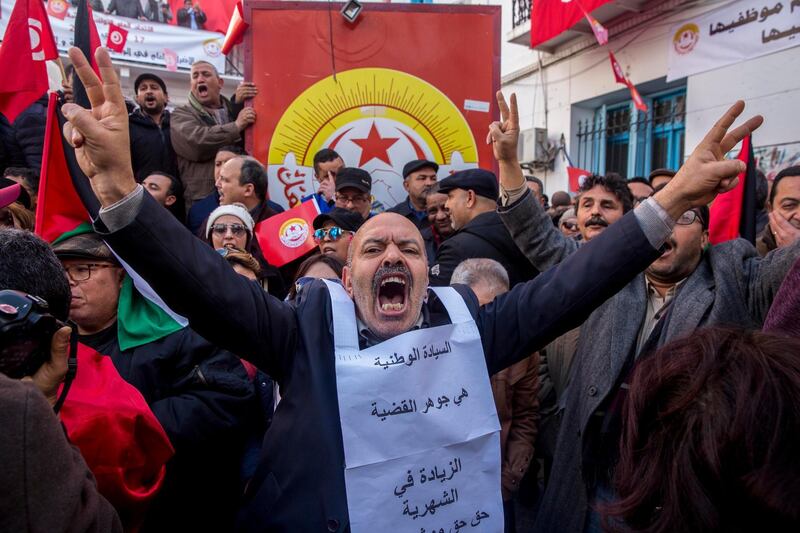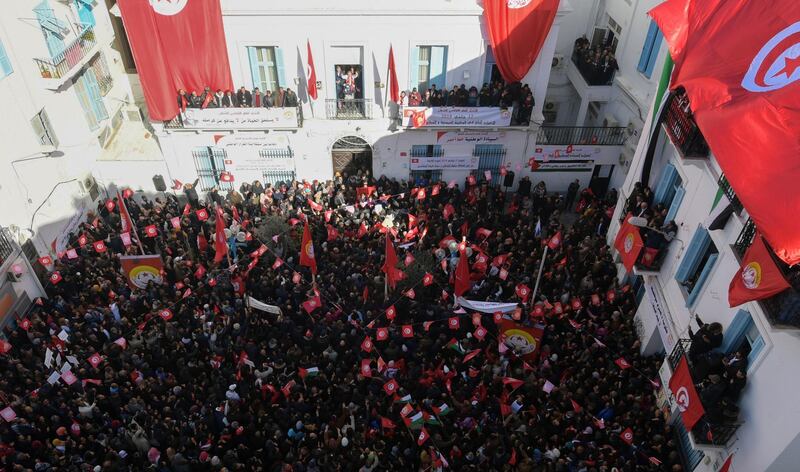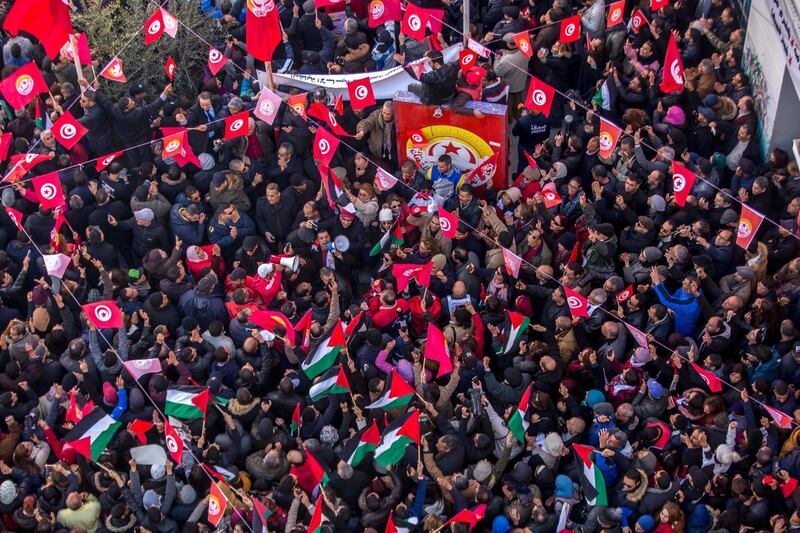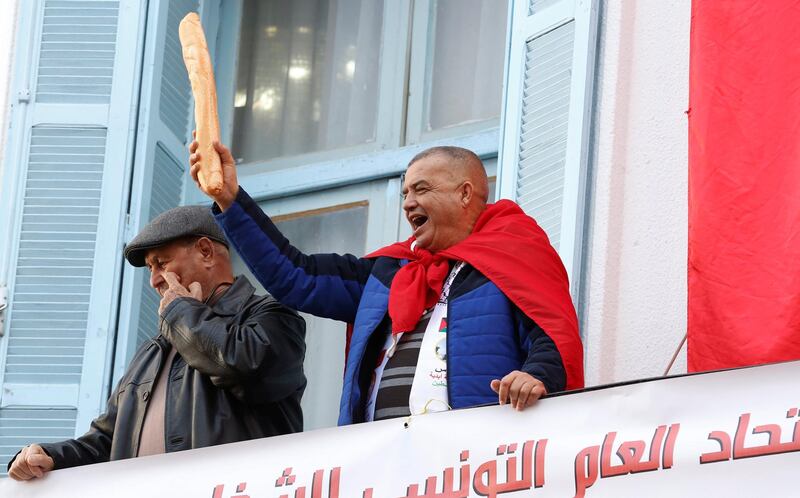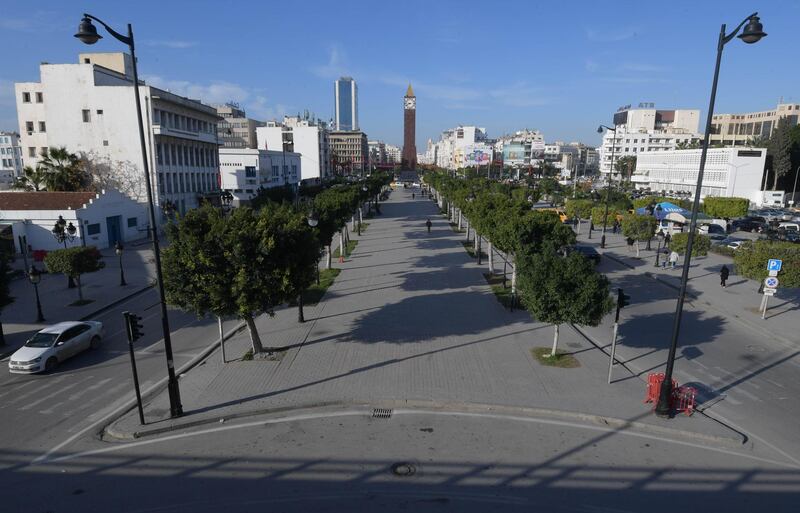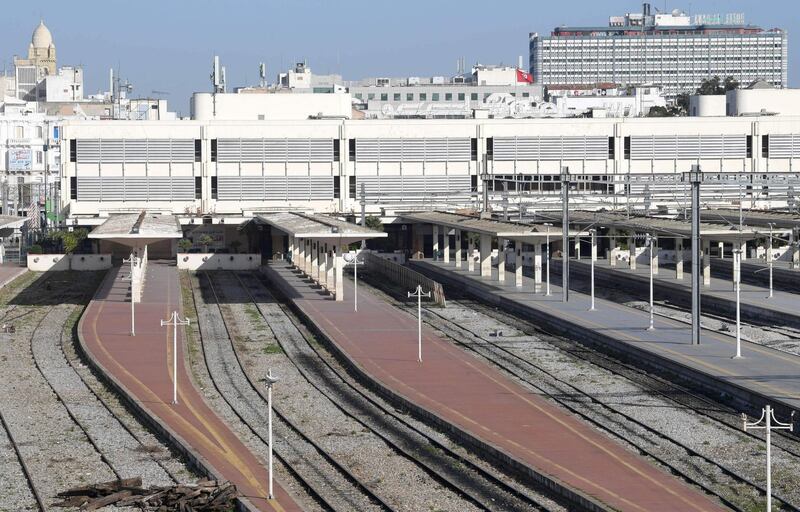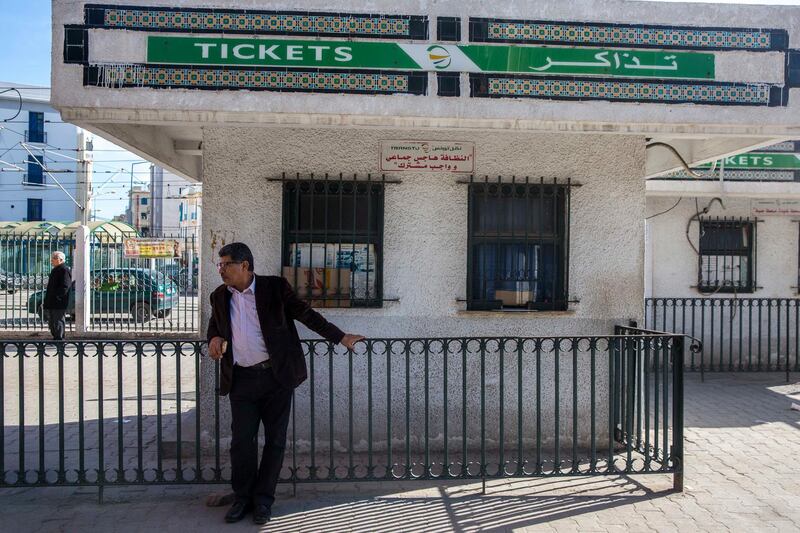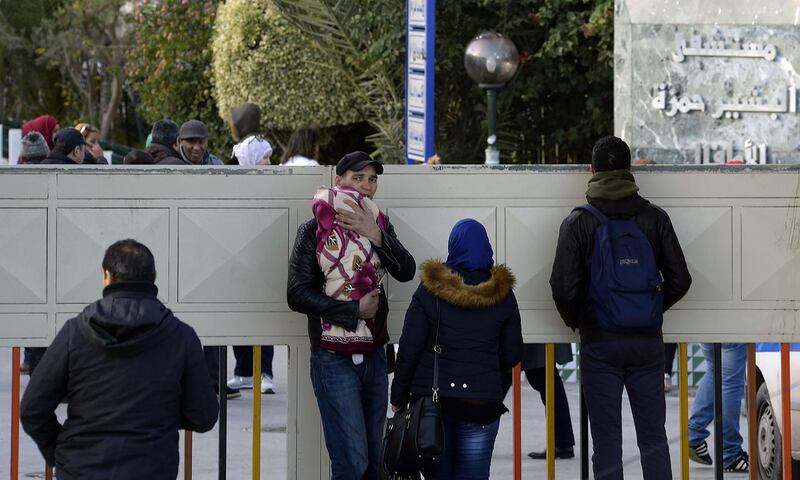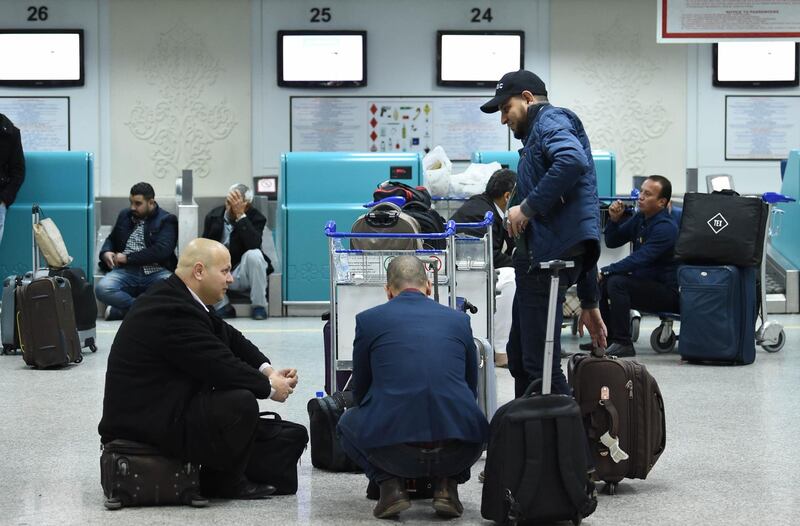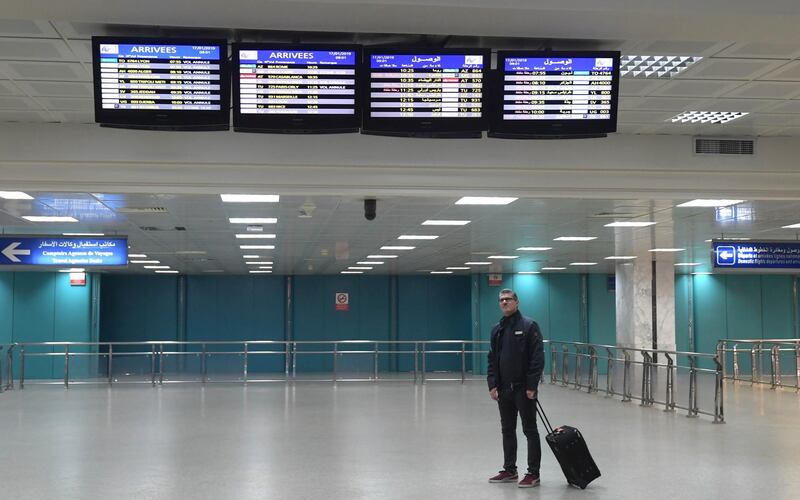A nationwide public sector strike in Tunis on Thursday brought rail, bus and air traffic to a standstill, and hit ports, schools and hospitals.
The strike organised by the General Union of Tunisian Workers (UGTT) is the biggest since the assassination of opposition politician Chokri Belaid in February 2013.
All flights in and out of the North African country's main airport were cancelled and check-in counters closed. Other public services, including ports, public transport, and hospitals were also disrupted.
"The core demands of the 2011 revolution were employment, the betterment of the Tunisian economy and an end to corruption. However, none of these demands have been met. This is why today we are here," Lassad Hamdi, one of the protesters told The National.
The UGTT, which boasts more than half a million members (about 5 per cent of Tunisia’s total population), and a branch in every province, has been engaged in a months-long stand-off with the Tunisian government over the need to increase pay in the public sector.
International lenders, including the International Monetary Fund, have urged Tunis to undertake a series of brisk public sector reforms, including the freezing of wages and the sale of state-owned companies, to reduce the country’s budget deficit.
The union and the government have engaged in negotiations in an attempt to reach a solution but so far no compromise has been reached.
"The government have chosen the confrontation with the public servants and we are ready," UGTT leader Nourredine Taboubi told thousands of people gathered in front of UGTT headquarters on Thursday.
"We will study on Saturday the next steps and we will step up our action and will not back down", he added without giving details on a possible escalation.
He accused the government of being afraid to "move a little finger without the green light" of the IMF.
Thousands of people gathered at the national union headquarters in Tunis and marched through the capital's main thoroughfare, carrying signs reading "Get Out!" and "The People Want the Fall of the Regime." Rallies were also held in other cities, including Sidi Bouzid, the cradle of the 2011 revolution, Gafsa, Jendouba and Sfax.
Lobna Mabrouk, a public servant said that she is taking part in demonstrations to denounce the high cost of living.
Mahmoud Douggi, a regional coordinator with the secular left-wing Popular Front coalition slammed the government’s inability to solve the crisis.
“The current government has no plans, either economically, culturally or politically. As a government of regressive parties... It doesn't have any new ideas,” he said.
Police surrounded the protest site but did not clash with demonstrators.
https://twitter.com/IgnitionUK/status/1085887378319912960
Prime Minister Youssef Chahed warned that the strike would result in a "considerable cost" to an already fragile economy and might push the government to seek further foreign loans with tough conditions.
Speaking on public television Wataniya 1 on Wednesday night, Mr Chahed said: "We did everything possible to avoid the strike in presenting proposals that improve purchasing power while at the same time taking into account the country's capabilities."
He invited the unions back to the negotiating table after Thursday's strike.
